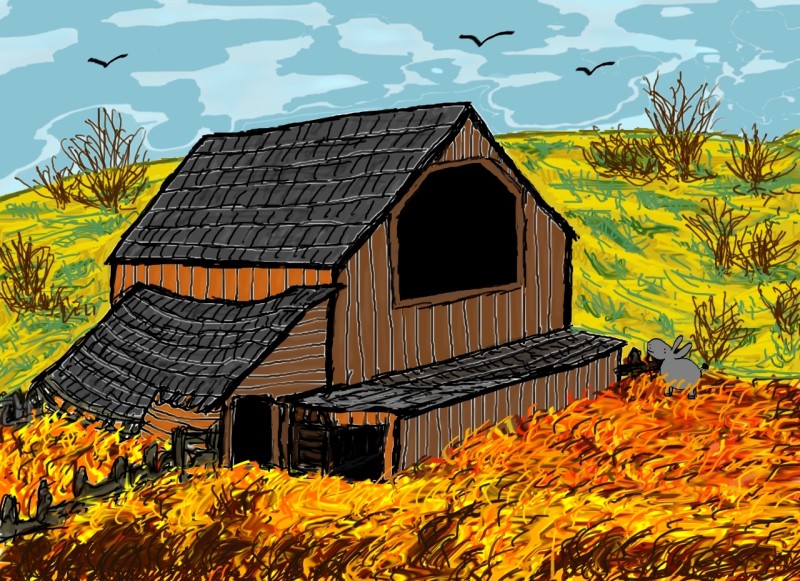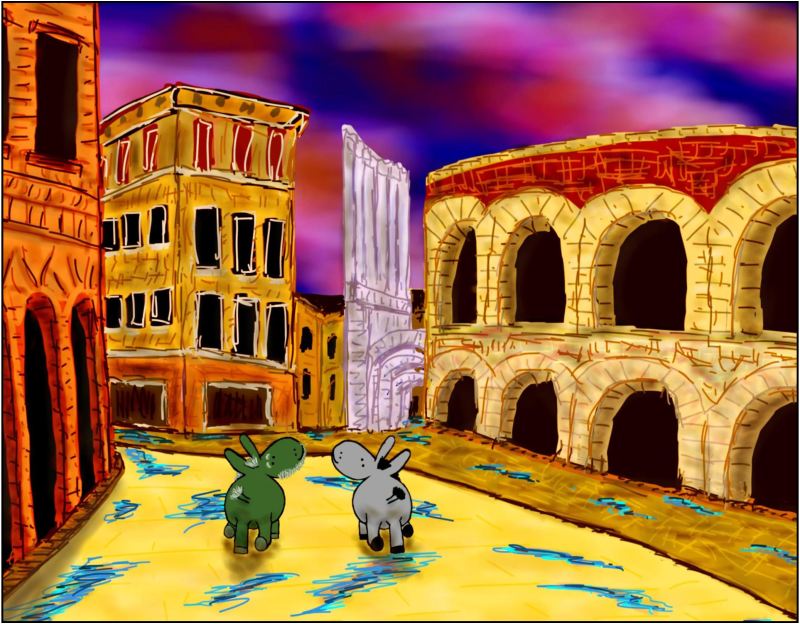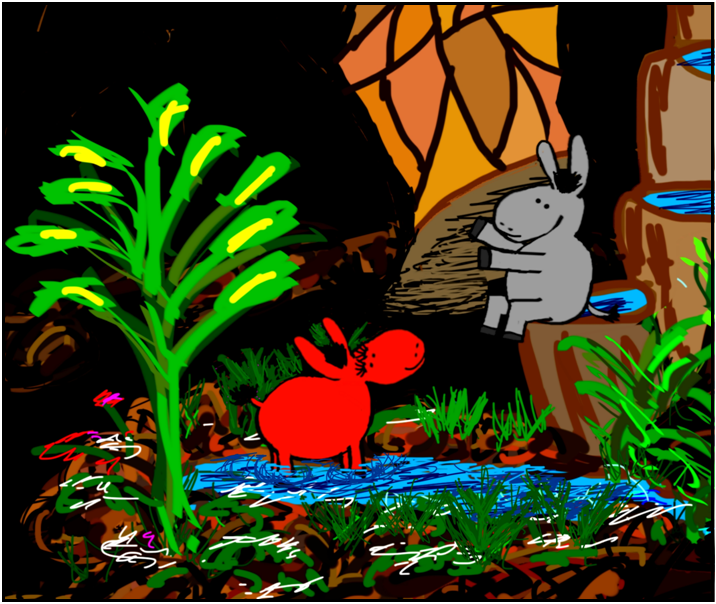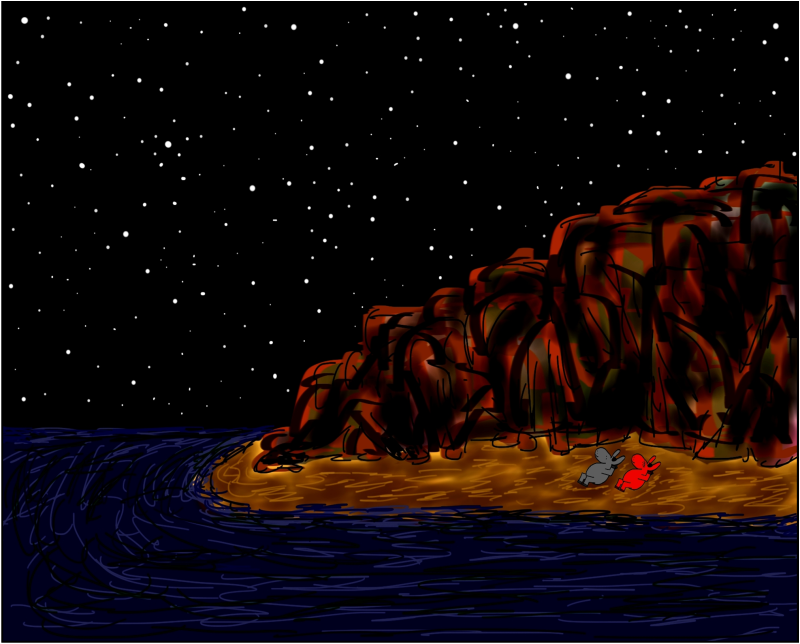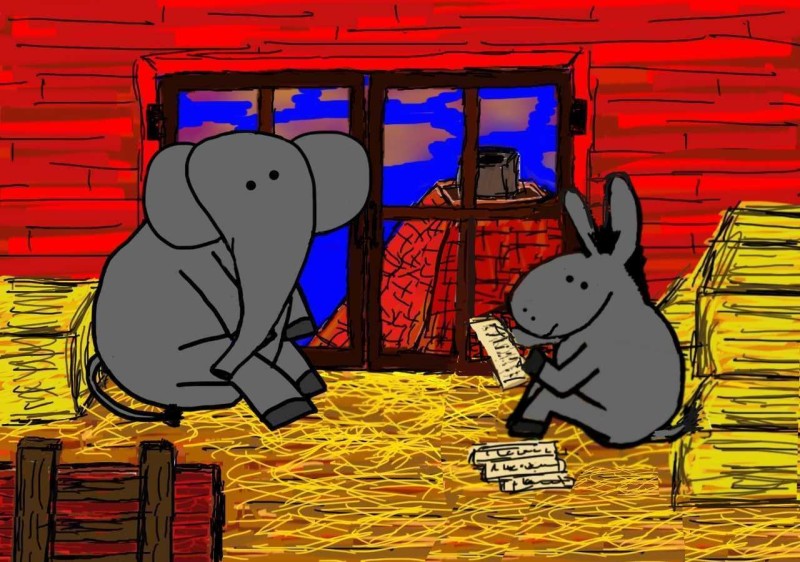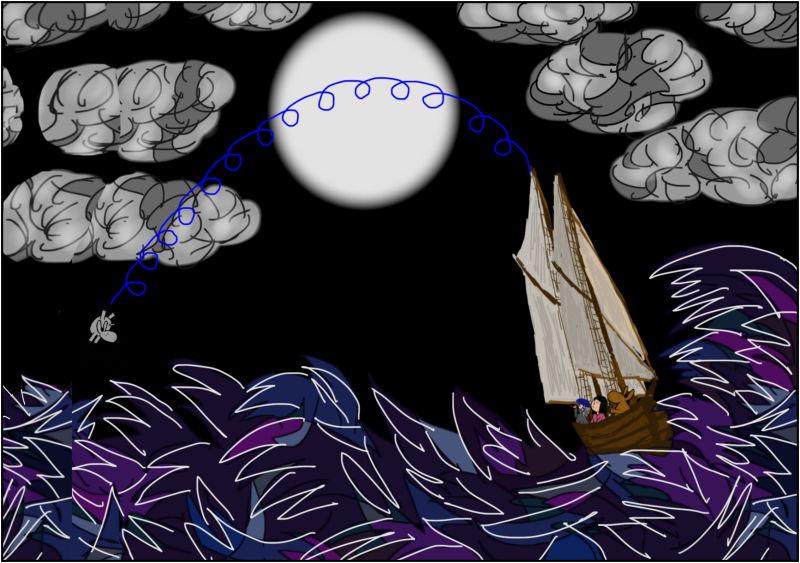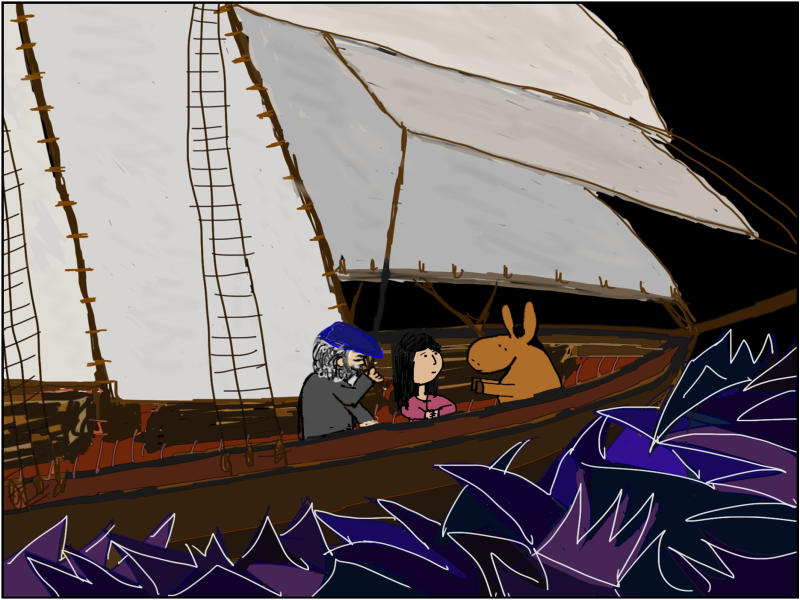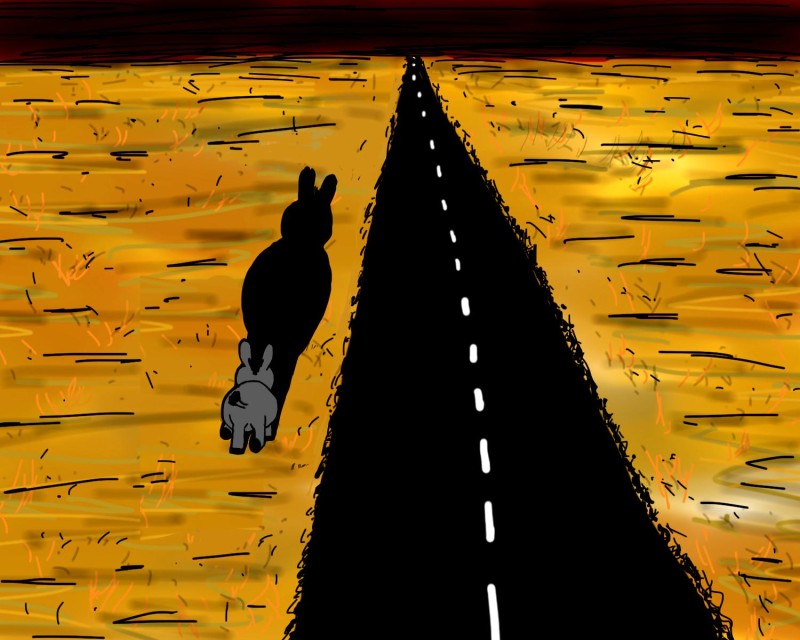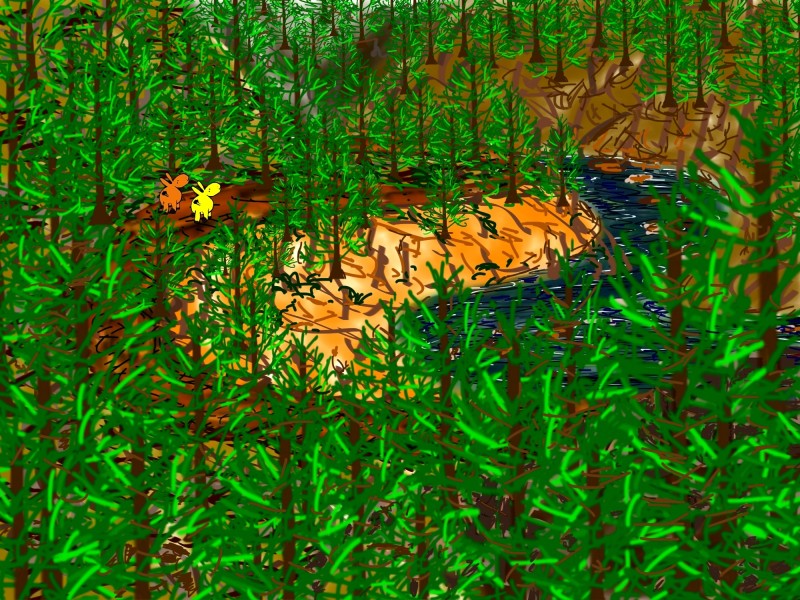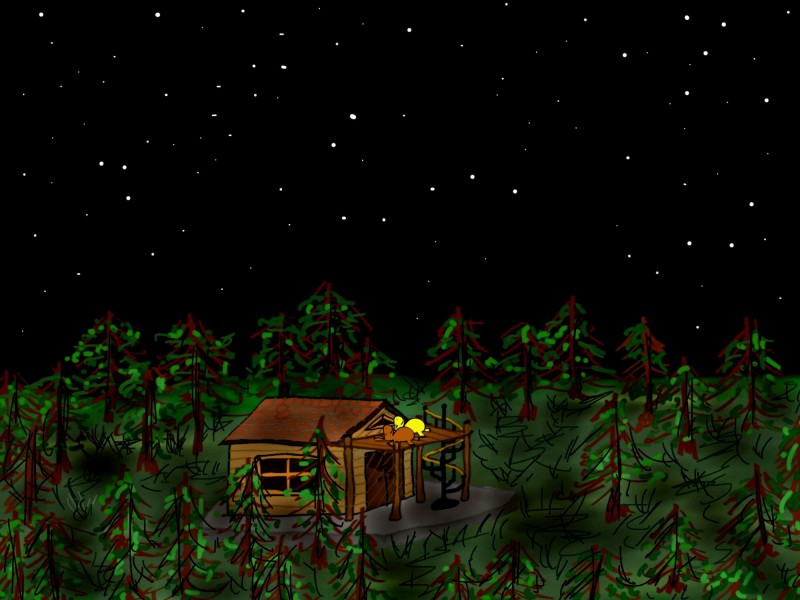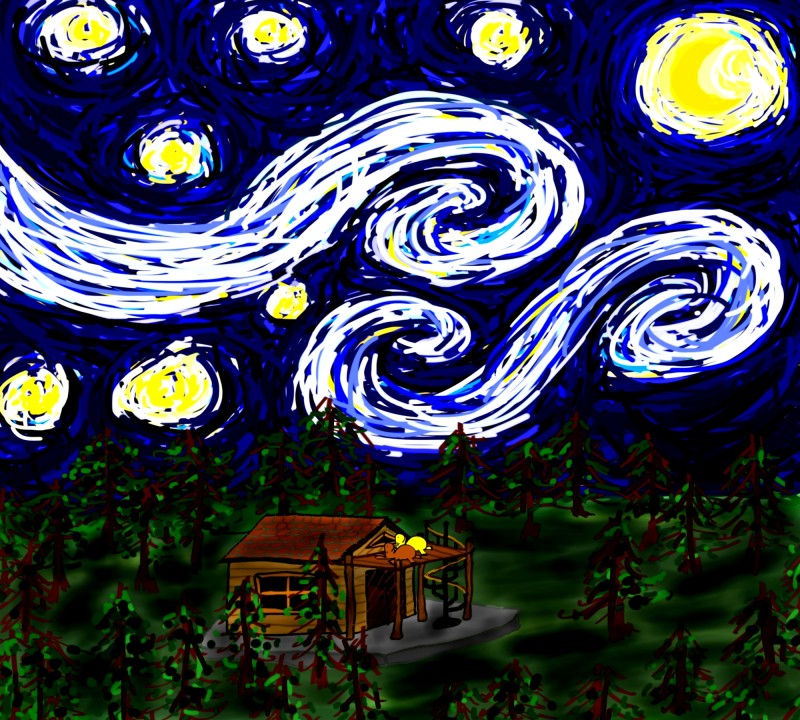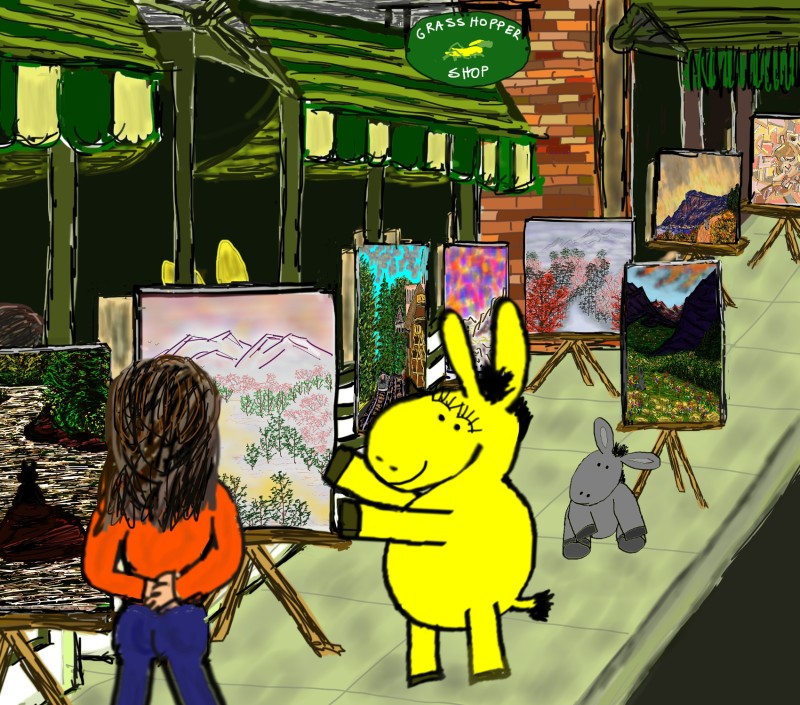Just think of all the delicious silence that was here since I’ve been gone.
Tag: paintings
“Blurtseau Lundif – Corsaire Extraordinaire” (IX)
The days came and went, and the weeks and months, and despite the rigor of his studies, Blurtseau’s mind wandered. In a real sense, he felt he was being torn in two. On one hand was his life as a warrior, defending his homeland and rising against injustice, and on the other was his growing love for culture and the arts, and for simple things. He reveled in the rhymed worlds of Dante and Petrarch, and the playful mischief of Boccaccio, and his thoughts often turned to Echo and the wisdom of her island. But it was too early to give up the physical rapture that had honed his body into a flawless fighting machine, a machine that fought without forethought, spontaneously parrying with a perfect balance of give and take. Yet now, had his instincts been altered? His equilibrium become unbalanced? Was he incapable of action without thought, without considering consequences beyond borders? Was this the price he paid for the loss of ignorance? For the joys of compassion? And as for his future, what did it mean? Fame and fortune now seemed empty next to a life of art, or a life of shared simplicity. Becoming a Renaissance donkey was not turning him into a harmonious whole, as he had hoped and expected, but was tearing him to pieces as the parts of himself vied, one against the others, for preeminence and control. And then there was his irrepressible sentimentality, as he continued to long for distant days with Pableau, Josette, and Echo.
“Blurtseau Lundif – Corsaire Exraordinaire” (VIII)
Blurtseau told Echo about his life before the island—his voyages, the battles he had fought, the perils he had overcome—but though she listened with enthusiasm, she could scarcely imagine the things he described, for they were all things she had never seen. Bloodshed, of which there was much in his stories, was unknown on the island, and though she had witnessed aging in other animals—the goats in particular—the only deaths she had seen were the result of natural cause, and it seemed to her no more troubling than a deep and dreamless sleep. As for the humans, who commanded so much attention in his stories, she had never seen one, and could only picture them as hyper-contentious goats walking upright. The towns and cities were unreservedly fantastic. She could not believe there were such things as streets and houses and palaces constructed from predetermined plans; a physical world built on the airy blueprints of imagination. She concluded that these magical creatures needed to do little more than imagine an object to make it appear, but she wondered why they chose to live in an artificial world rather than the real one that was already around them.
Blurtseau, for his part, found Echo’s innocence to be as unimaginable as his lack of it, and he began to understand that what he saw, even the simplest object on the island, bore little resemblance to what she saw. And the meanings that he understood when he used the words he used were not the meanings she understood when she heard them. But he was enchanted by her innocence, and longed to know what it was like to live in her world, and she was content to play Desdemona to his Othello, losing herself in his tales, imbibing adventure as if slaking her thirst at a secret and mysterious spring.
“Blurtseau Lundif – Corsaire Extraordinaire” (VII)
At this point in the novel, said Blurtso, Blurtseau Lundif and his friends have intercepted the British sugar ship and are fleeing for their lives…
Claude did as directed, with the British sloop behind, until pursuer and pursued were lost from sight beneath the watery peaks. Blurtseau, who could no longer see the enemy ship, turned to descend the rigging, but before he could, a wall of water struck the schooner, causing the hull to rock and roll, and throwing our hero—as if he had been pitched from a catapult—into the frothing jaw of the sea. His companions watched in horror as he soared, head over hooves, describing a perfect parabola across the moonlit sky.
“Blurtseau!” called Pableau.
“Blurtseau!” called Josette.
“Blurtseau!” called Claude. But their comrade could not hear, or if he could, he could not reply, and the rudderless ship, steered now by the storm, drew quickly away, leaving our hero bobbing like a cork on the writhing water.
“We must turn and find him!” cried Pableau.
“Turn whither?” said Claude.
“Blurtseau is an excellent swimmer,” said Pableau. “I’m sure he’s secured a plank, or piece of driftwood, and is paddling for calmer seas. If we circle, describing a broader and broader circumference, we’ll cross him with our bow.”
“Yes,” said Claude, “when the storm has settled.”
And so they waited, tossed and turned in the belly of the gale, until the sky cleared. By dawn the British frigate, carried east with the careening clouds, was no longer to be seen, and the Zurrabelle was free to begin her search.
They sailed for fourteen days and fourteen nights, each day broadening the scope of their search, and each day encountering only sea. On the morning of the fifteenth day Pableau, perched on the foremast, thought he had spied his lost friend, but he was soon dismayed when closer inspection revealed a dark-grey dolphin. Josette, who had been holding up bravely, burst into tears, and Claude drew slowly and solemnly upon his pipe.
“Blurtseau Lundif – Corsaire Extraordinaire” (V)
At this point in the story, said Blurtso, Blurtseau Lundif, reunited with Pableau in Roquebrune, France, questions the new course of his nation…
“I only want what is best for France,” said Blurtseau.
“What you want,” said Zurrabela, “is a reality that can be measured, a world that can be defined; not a process, but a paralysis.”
“I want a consistent process,” said Blurtseau, “one in which the principles of right and wrong are constant, and I can act with certainty.”
“But that is not a process,” said Zurrabela, “that’s a closed sphere that excludes all that lies beyond it, an imaginary world that denies the world at large. In all the battles you fought, on land and at sea, did it never occur to you that the enemies you faced believed that they were as ‘right’ and ‘justified’ in their beliefs as you were in yours? If you look closely, you will see that the dynamic that once took place beyond the borders of France, is now taking place within.”
“Yes,” said Blurtseau, “I see that, but I can’t tell which group is right, which group has the true interest of France at heart.”
“That,” said Zurrabela, “is for your countrymen to decide. It is the essence of democracy, and the responsibility that accompanies the future you seek. You can no longer be a follower, obeying as you would the lead of a king. Your country has set sail for a new world, a world whose challenges go beyond the question of national obedience, to the greatest challenge of all, that is, governing your self, coming to your own conclusions and acting on personal conviction. What is right? What is wrong? For France, for others, for me? These are the questions that each citizen must ask, the questions that your fellows are risking their lives to be able to ask.”
“Blurtso follows his shadow”
“Bonny and Pablo go for a walk”
“Bonny and Pablo look at the stars” (V)
“Bonny and Pablo look at the stars” (IV)
“Bonny Bray goes to Concord” (II)
Hey, said the tourist, you didn’t sign this one. No, said Bonny, I didn’t sign any of them. Why not? said the tourist. Because they don’t belong to me, said Bonny. Who do they belong to? said the tourist. They don’t belong to anyone, said Bonny. What do you mean? said the tourist. Does the snow belong to the clouds? said Bonny. No, said the tourist. Do the flowers belong to the sun? No, said the tourist. Does anyone own the grass in the field? Well, said the tourist, if someone owned the field, they might think they owned the grass. Yes, said Bonny, but they would be wrong.
